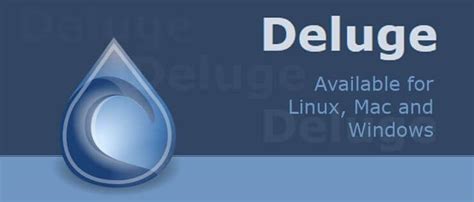Deluge's User ID: Easily Retrieved
Deluge, the popular BitTorrent client, doesn't explicitly display a user ID in the same way some other applications might. This often leads to confusion for users who need to identify their specific client instance, perhaps for troubleshooting, support requests, or understanding logs. This article will clarify how to effectively identify your Deluge user ID, regardless of your operating system or configuration. We'll also address some common related questions.
What is a Deluge User ID and Why Do I Need It?
Before diving into how to retrieve your ID, let's understand its purpose. A Deluge user ID is not a unique identifier tied to your account in the way an email address might be. Instead, it's an internal identifier that Deluge uses to distinguish your client instance from others. This ID is crucial for:
- Troubleshooting: When reporting bugs or seeking technical assistance, providing your Deluge user ID helps support teams pinpoint the exact client and configuration causing the issue.
- Log Analysis: Deluge logs often include the user ID, allowing you to filter and analyze logs specific to your instance. This is particularly helpful when diagnosing problems.
- Remote Access: If you're using remote access features with Deluge, understanding your user ID can be essential for proper configuration and management.
How to Find Your Deluge User ID
The most straightforward method to identify your Deluge user ID is by examining the Deluge logs. The exact location of these logs depends on your operating system, but they generally contain information about your client's activity, including the user ID.
Locating the Deluge Logs:
- Linux: The log file location varies depending on your distribution and how Deluge was installed. Check the Deluge configuration file (
deluge.conf) or your distribution's documentation for the precise path. Common locations include/var/log/delugeor within your user's home directory. - macOS: The logs are often located within the Deluge application support directory. You might need to use the Finder's "Go to Folder" feature (Shift + Command + G) to navigate to the correct directory.
- Windows: The log files are usually located in the Deluge data directory. The default location is often within your AppData folder, which can be accessed by typing
%APPDATA%into the Windows search bar. Look for adelugedirectory within.
Analyzing the Log Files:
Once you've found the log files (often named something like deluge.log or daemon.log), open them with a text editor. Search for lines containing "user ID" or similar phrases. The user ID will typically be a number or a short string of alphanumeric characters associated with each client instance.
Troubleshooting Log File Access
Q: I can't find my Deluge log files. What should I do?
A: If you can't locate the log files, double-check your Deluge configuration settings. The location may have been customized during installation. Additionally, check your operating system's log locations – sometimes, applications write logs to system-wide log directories. If you still encounter difficulties, consult the Deluge documentation or seek support from the Deluge community forums.
Q: My Deluge logs are enormous and difficult to navigate. How can I find my User ID quickly?
A: You can use text editors with search functionalities to quickly locate the phrase "user ID" or other identifying keywords. Consider using tools like grep (on Linux/macOS) for a more efficient search. Many text editors also allow you to filter results based on keywords.
Q: What if my Deluge user ID changes?
A: Generally, your Deluge user ID remains consistent for a specific client installation. However, reinstalling Deluge or making significant changes to the configuration could result in a new ID being generated.
Conclusion
Retrieving your Deluge user ID is crucial for effective troubleshooting and support. While not directly displayed in the user interface, it's easily found within your Deluge log files. By understanding the location of these logs and employing efficient search techniques, you can quickly identify this important piece of information. Remember to consult the Deluge documentation or community forums for further assistance if needed.

